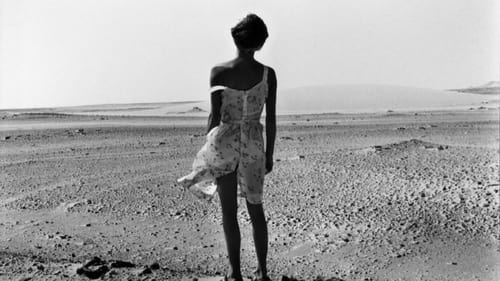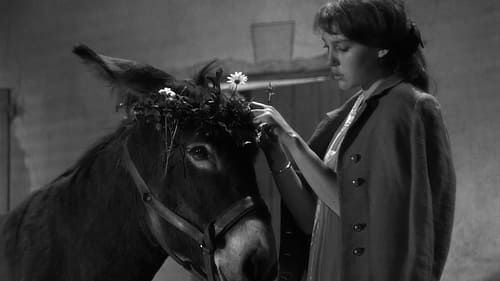
Director
Pierre Guyotat at home, between 2002 and 2009: scenes from a writer’s life. First he organises his library : each book is an occasion for comments, reminiscences, questionnings. Then he is seen at work, preparing an edition of his Notebooks with his assistant, based on manuscripts from the 1960s. He is finally seen in his room, sitting in bed, discoursing on french kings and working out a text out loud, in a hypnotic self-dictation. Because Pierre Guyotat offers himself unrestrainedly to Jacques Kébadian’s attentive filming, this most precious of films gives us a rare glimpse into a writer’s intimacy: into his labour and passion. (Cyril Neyrat)

Writer
In May 1968, workers, students and young people rise up against the morality and power of the establishment. Faculties and factories are under occupation. Barricades are erected. Paving slabs are launched. Words give way to actions. This is the confrontation. These images bear witness to the men and women who, in their indignancy, march towards their revolution. 50 years ago, as part of our ARC collective, we filmed the uprising of May and June 1968. Out of this material and scenes borrowed from our other filmmaker friends, we created this film.

Director
In May 1968, workers, students and young people rise up against the morality and power of the establishment. Faculties and factories are under occupation. Barricades are erected. Paving slabs are launched. Words give way to actions. This is the confrontation. These images bear witness to the men and women who, in their indignancy, march towards their revolution. 50 years ago, as part of our ARC collective, we filmed the uprising of May and June 1968. Out of this material and scenes borrowed from our other filmmaker friends, we created this film.

Director
The Hovanessian family immigrated to the United States in winters 1994. Vartan and Anahide allowed me to share the last days before their departure from Erevan. The young Armenian Republic, still in shock from the earthquake and in conflict with Azerbaijan for the autonomy of Karabagh, was suffocated by a blockade that made the emergence of a new economy difficult.

Director
In March 1996 the French government decided to expel all African family who did not have papers from the city of Paris. During a six month period of time, the director followed many of the families and got there testimonials about how it felt to be discriminated against by the French on film. Eventually the documentary focuses on one man who emerges at the center of the fight to not to be sent back to Africa. In the end he is sent back to his native Mali, the director and his camera accompany him.

Paul
Mathieu (Philippe Garrel), diretor, se prepara para gravar um novo filme. Ele escolhe para a liderança do sexo feminino, uma atriz famosa (Anémone). Porém, sua esposa Jeanne (Brigitte Sy), acredita que a história do filme é autobiográfico. Ela considera essa escolha como uma traição... e ainda tem o filho comum de 6 anos, Lo (Louis Garrel)... Ao filmar sua própria vida e colocar nisso um núcleo familiar verdadeiro (esposa, pai e filho, todos atores de ofício), Philippe acompanha a luta de uma geração que já não sabe como se enxergar, como sobreviver. Por mais que ele tente se nomear enquanto personagem, nunca o vemos como tal, ao menos não como outro além do que ele próprio e os seus...

Director

Editor
A man invites a woman to share his room in a hostel and gradually falls in love with her.

Director

Director
"No Return Possible": these three words cross the identity papers of the Armenians who left Turkey after the massacres of 1915.

Director
"Part of the series grands jours et jours ordinaires (big days and ordinary days), UN CAFE UN details a small coffee shop and bistro in Paris over the course of one long working day, carefully registering small moments (like one businessman’s very long gulp of his first beer, or a bored child soliciting the attention of the various old ladies who flock to the espresso counter on the regular.)" - Spectacle Theater

Young trans women make the streets of Paris their cabaret. Their dreams are quickly overtaken by reality.

Director

Director
France, 1972. Albertine, a teenager in rebellion against school, the rancid family and religion, asserts her rights to a sexuality without obstacles. Wiith her friends, and the right to the abortion for the minor ones. With her friends, she campaigns for the rights to sexual pleasure and abortion for minor girls.

Assistant Director
When his young wife commits suicide with no explanation, an introspective pawnbroker looks back on their life together.

Le dragueur
When his young wife commits suicide with no explanation, an introspective pawnbroker looks back on their life together.

Director

Director

First Assistant Director
A young girl living in the French countryside suffers constant indignities at the hand of alcoholism and her fellow man.

Director
Story of the life of an extraordinary man, who with Lenin, was the symbol of the Revolution of 1917.

Assistant Director
Uma obra de enorme cariz simbólico, onde a concepção humana e espiritual das personagens, virtudes, receios e defeitos, é encompassada pelo olhar e presença de um burro, de seu nome Balthazar, que surge quase como uma figura de matriz religiosa. Não é um burro qualquer. No circo descobrem-lhe qualidades extraordinárias, como uma inteligência rara que lhe permite resolver difíceis operações de multiplicar. Intemporal, pela reflexão que provoca e pela universalidade que evoca.

Director
From the sculpture of Jean-Robert Ipoustéguy.














